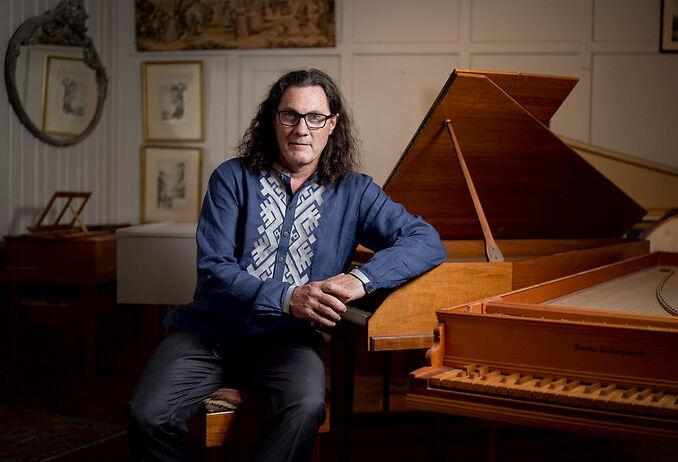An 18-year-old Richard Auber had just begun his music degree with money he borrowed from his parents. “Musicians don’t make money,” his father, an amateur recorder player himself, warned Richard.
Auber played the flute, and some of the most beautiful music he could play was the music of Bach. Auber played the modern flute, that is, the metal one rather than one made of wood. But that early baroque music, when accompanied by piano instead of harpsichord, sounded too heavy and not quite right.“I didn’t even know early music was a thing,” Auber said. This was the late 1970s, and his school certainly had no early music program, whereas today nearly every music conservatory has a department dedicated to early music: baroque, renaissance, medieval. So, Auber borrowed $1,505 more from his parents, bought a harpsichord kit, and built the instrument right there in his dorm room. It was a Zuckermann harpsichord from the company founded by American Wolfgang Zuckermann, the pioneer of build-it-yourself harpsichord kits in the late 1950s.






